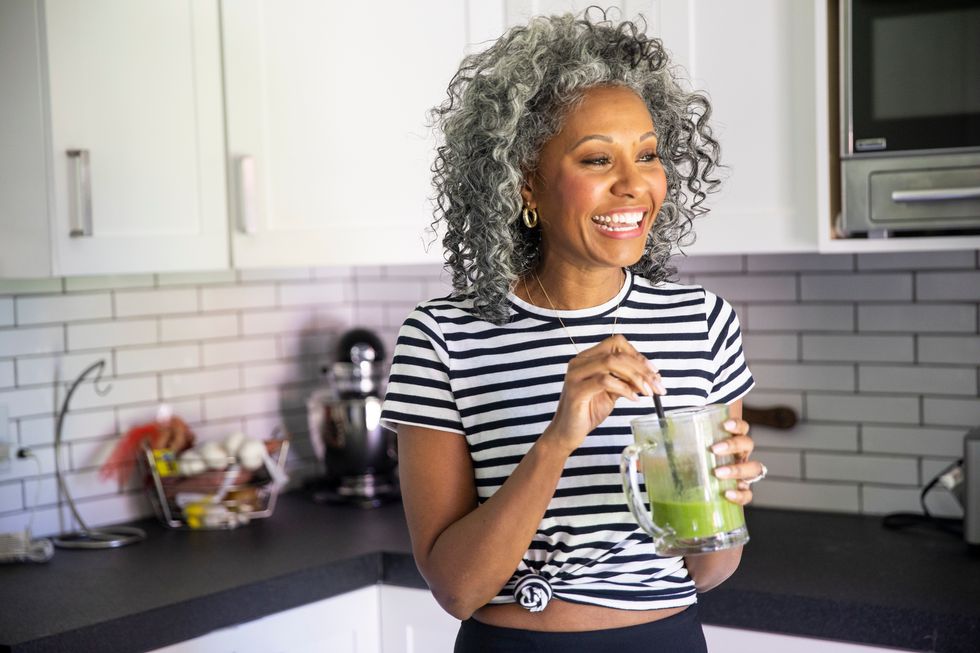I'm thinking a lot about aging lately. It happens every year when I celebrate my birthday.
While I feel blessed to be growing older—I know so many people don't get that privilege—and equally fortunate to have so many thoughtful friends to help me celebrate, those birthday emotions aren't limited to just joy and happiness. I also can't help feeling a bit apprehensive about what the future holds.
Granted, none of us has that sought-after crystal ball that can reveal our future (and if we did, I'm sure you'll agree that we'd not want a full view).
Good genes count for a lot. On the day after my birthday, I attended a funeral for my husband's cousin, who died at the ripe old age of 101. And, believe it or not, she had two friends—both from her childhood—who attended her funeral. No doubt, good genes helped them.
But genes aside, there are many things we can do to help ourselves age well—or age better, at the very least. A healthy lifestyle goes a long way: Even for people at genetic risk for dementia, those who followed a healthy lifestyle fared better, according to research.
Eat right. Think the rainbow: The more colors you eat (as in fruits and vegetables, not artificial colors!), the more varied and wider range of nutrients you're getting. Make sure to include plenty of green, leafy vegetables, as well as legumes and whole grains. For protein, opt for plant sources and fish and limit your consumption of red meat, dairy and other animal products. Read more about How to Increase Plant-Based Foods in Your Diet.
Mind your brain. Memory lapses do happen with age, but there's a lot we can do to preserve our cognitive abilities. While it was once thought that you couldn't make fresh brain cells as you age, scientists now know otherwise. It's possible to do it—well into your 90s, in fact. Keep your brain active and engaged with learning, physical activity, staying socially active and managing stress. Foods linked to better brain power include green veggies, fatty fish (like salmon, cod, pollack and canned light tuna), berries, tea, coffee and walnuts. Read Dementia Can Happen to Anyone but Is Not a Normal Part of Aging.
Work hard to prevent falls. They're the number one cause of injury in adults 65-plus, responsible for medical costs exceeding $50 billion in 2015. If you fall once, your chance of falling again doubles, which is why you need to pay attention to this serious and costly problem. How? Strengthening and balance exercises help, as does making sure your eyewear prescription is up to date. Wear footwear that gives you plenty of comfort and support. And since many falls happen right at home, be aware of things that you could trip over and make sure there's adequate lighting throughout your house. Some prescription and over-the-counter medications can cause dizziness or sleepiness, so be mindful of what you take and use extra precaution if you're taking something that compromises your balance. Read Low Blood Pressure May Be Hazardous to Your Health.
Keep moving (or if you don't move much, start!). Exercise gives a real big bang for its buck: Midlife fitness is linked with a lower risk of chronic disease later in life. Exercise also reduces the risk of things like cardiovascular disease, stroke, muscle loss, depression and obesity—just about everything you want to avoid. Even if you haven't exercised much up to now, it's never too late to start. You can still get all the benefits of someone of a similar age who has been exercising throughout their lifetime, research shows. And another benefit of exercise: Fitter Bodies Make for Healthier Brains.
Fight off depression. Depression is not considered a normal part of aging, although there can be many things, like the loss of a loved one, moving, retirement or dealing with a serious illness, that can cause it. But since depression has been linked to a shorter lifespan (it can actually age your DNA) and a higher risk of cardiovascular problems, it's best to try to prevent it and, if you can't, to recognize and treat it. Regular exercise, a healthy diet, socializing, owning a pet and getting enough sleep are great depression-busters. So is treating hearing loss. Untreated hearing loss can lead to social isolation and, in turn, depression. Find out about Depression and Alzheimer's: What's the Connection?







